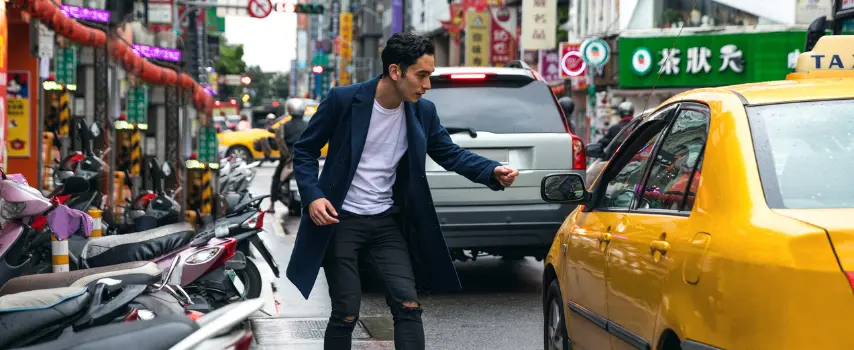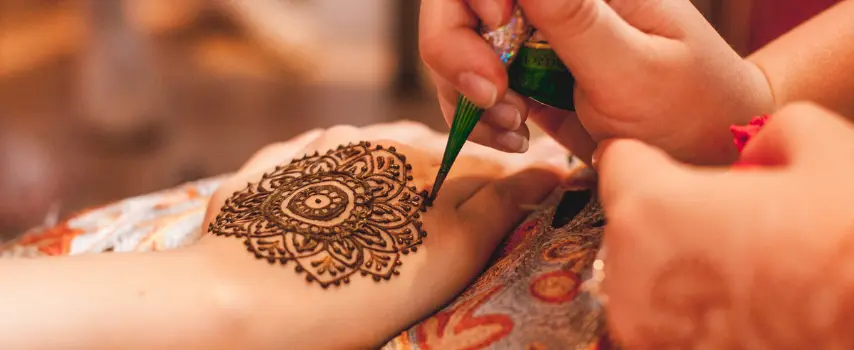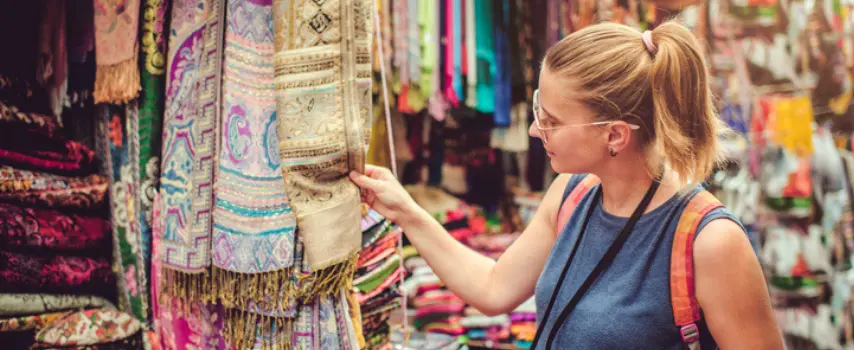16 Common Travel Scams – and Tips on How To Avoid Them
Think tourist scams are a myth? Sadly, scammers targeting travellers is more common than you may realise. To help you travel smarter – and safer – here are our helpful tips on how to avoid travel scams on your next holiday.

Source: Getty
DID YOU KNOW?
Our Cover-More App can provide you with safety advice and alerts as you travel, all in the palm of your hand. Tell Me More →
It's easy to understand why travellers can get caught out by scammers looking to take advantage of tourists: we’re often wrapped up in the excitement of being on holiday and focused on having fun.
“Unfortunately, tourist scams are all too common across the world,” revealed Paul Trotter, Cover-More Assist’s Intelligence and Security Lead. “Criminals often try to make a quick dollar off ‘easy targets’ like travellers, because they are generally unfamiliar with the area they’re visiting.”
Here, we reveal 16 common tourist scams, plus how to avoid travel scams while you’re away from home.
Tips on how to avoid travel scams as a tourist
Travel scam #1: The ‘friendly’ local
The top tourist scam is when someone approaches you under the guise of being a friendly local, and offers to help you with directions, recommendations for restaurants and attractions, or to show you around town. While this may seem harmless, it’s often an attempt to get close to tourists and pickpocket or steal belongings.
“It can often be tricky to determine if your interactions with a local is genuine or a tourist scam. If you’re approached by someone who seems to be friendly, be sure to keep your guard up, ensure your belongings are secure, and don't let them get too close,” warned Trotter.
“If you do catch someone trying to steal from you, it’s best to draw attention to yourself – and them. Loudly ask what they are doing or make an exclamation and they will often retreat quickly. That said, if the person appears like they may harm you it’s best to comply. No belongings are worth risking your safety.”
Travel scam #2: The ‘free’ bracelet
Ever been offered a ’free’ bracelet or necklace? You’re not alone – it is one of the most common travel scams across many European cities.
In this scam, someone approaches you on the street and offers to put a bracelet or necklace on you for free. However, once the jewellery is on, they will quickly try to add more and more, then demand payment for these ’free’ items.
“This common travel scam happens quickly – and the scammers can become aggressive if you don’t pay up, which can be quite confronting for tourists. If you are approached by someone offering these ’free’ items, just keep walking and don't engage with them,” advised Trotter.
Travel scam #3: The ‘unofficial taxi’
This tourist scam unfolds when a taxi driver picks you up at your hotel or the airport, and then takes you to a nearby ATM so you can take out cash to pay them. The scamming driver will usually say this is because credit cards are not accepted, or they don't have change for your large bill. Once you get cash out of the ATM, they grab the money and drive off without taking you to your end destination.
How can travellers avoid travel scams like this? Only take licensed taxis or use pre-paid ride services, and don't let the driver take you to an ATM.
Travel scam #4: ‘Broken’ taxi meter
Have you ever stepped into a taxi and been told the meter isn't working and you'll have to pay a set price? If so, there's a chance you were taken for a ride by one of the most popular tourist scams.
“Unfortunately, this travel fraud is widespread throughout the world,” explained Trotter. “It's easy to avoid by choosing only licensed taxis and refusing to get into the taxi unless the meter is switched on. If no other taxis are available, agree on a set price before getting in.”
To understand what you should be paying for taxi services on your trip, do you research before you leave home.
“Drivers may prey on tourists unfamiliar with the local area and offer a flat-rate fare, which is significantly higher than it should be. If you know what the locals are charged, act as though you're walking away while negotiating,” suggested Trotter. “It may help you save money on the fare.”
Travel scam #5: The attraction you're going to is 'closed'
So, you planned to spend the afternoon at a popular museum or tourist attraction, but now your taxi driver or guide is claiming your intended destination is closed. Don’t let this scenario fool you – it’s a common travel scam.
After sharing this information, the seemingly well-meaning guide or driver will usually offer to take you to a different location instead; a location that earns them money. For example, you may be led around a shop (controlled by their relatives or friends) or taken to an attraction and forced to pay an exorbitant entrance fee.
“Our first instinct while travelling is to accept help and advice from others. If tourist scams like this happen to you, play it nice and polite, thank them, and insist that you are delighted to go back to your starting point,” recommended Trotter.
“Before heading out for the day, ask your hotel or accommodation provider or research online for recommendations for popular tourist attractions. If there are in fact any closures or facts you should know before visiting these sites, they will most likely inform you.”
Travel scam #6: The 'free' henna tattoo
To earn a quick buck, scalpers in Arabic countries may offer free henna tattoos – usually notable by their poorly done designs. They'll then ask for money for the tattoo and can become aggressive if you don't pay up.
To avoid getting roped into this unwanted ink, be firm with your decline and keep your hands in your pockets so you look less approachable.
This scam is especially common in Morocco and Egypt, so if you’re travelling to these popular tourist destinations, pay extra attention to offers from locals.

Source: Getty
Travel scam #7: The 'filled straight from the tap' jig
In certain countries, it's a common practice for entrepreneurial types to collect empty water bottles from trash cans, fill them with tap water, and sell them icy-cold from a tub of ice at popular tourist sites.
While not as harmful or costly as other common travel scams, this one might make you ill if you drink unsafe local water, such as in regions including Southeast Asia, Africa, and South America.
“Make sure the bottle of water you're buying has been properly sealed; otherwise, don't buy it,” advised Trotter.
Travel scam #8: The boy and the biscuits
This trick sounds like the title of a bizarre theatre production – and it almost plays out like one. If you spend enough time in busy squares or plazas while you’re travelling overseas, you might become a victim or perhaps part of the audience.
In this tourist scam, a vendor (usually a young child) will have their items knocked over by an inconsiderate passer-by. There will be some commotion, the seller will be devastated and cry over the ruined goods…before the guilty-feeling tourist parts with some money to cheer them up.
If you wait in the area long enough, you'll often see the child return, selling the same biscuits they collected from the ground prior.
Travel scam #9: The unofficial tourist guide
One of the tourist scams travellers often fall for is being approached by a so-called ’guide’ outside an attraction, who tries to convince you that you need their help.
Travelling scams like this are popular worldwide, but particularly in countries such as Thailand, Cambodia, and Egypt.
If you accept the person’s help and don't agree on a price upfront, they may end up charging you a large amount of money.
“The best way to avoid this scam is to see what other people are doing around you before agreeing to anything,” explained Trotter. “In many cases, you won't need a guide at all – simply taking an information brochure or grabbing an audio headset will suffice.”
Travel scam #10: The dropped phone or wallet
A more devious tourist scam is when someone 'sells' you back your own belongings. For example, if you drop your phone, an opportunistic thief could pick it up and then demand money from you to get it returned.
“To protect yourself (and your wallet), always be aware of your surroundings and know the approximate value of what you're carrying with you,” said Trotter. “That way, even if the worst does happen, you'll at least have an idea of what's fair to pay.”
Travel scam #11: The fake police scam
Unfortunately, many travellers are scammed by individuals falsely claiming to be law enforcement to extort money. These fake police will ask for your ID and then make up a reason to issue you a fine, before telling you it can be paid immediately or asking for a bribe in exchange for returning your ID. Sometimes they wear uniforms and other times they don't.
“This is one of the trickier common travel scams as it can be stressful trying to determine if the police officer is legitimate – and naturally we want to be helpful and comply with law enforcement officers,” admitted Trotter.
“Be cautious if someone claiming to be a police officer asks for your identification and demands payment on the spot. If you are unsure whether they are legitimate, ask to see their ID as well. According to law enforcement, if you're issued a fine by them, you have the right to go pay at the station instead of giving them money then and there. Oftentimes, imposters will quickly leave when confronted in this way.”
Travel scam #12: The rental scam
The you damaged it, 'you pay for it’ scheme is unfortunately all too common when renting vehicles on holiday.
For example, a traveller rents a jet ski in Thailand or scooter in Mykonos, and upon returning it, they are met with exorbitant demands for payment for damage that was already present on the vehicle. In this scenario, the rental company may hold your passport or even call the police until you pay up.
“To avoid this travel scam, always inspect the vehicle or equipment before hiring it and take photos of any existing damage,” advised Trotter. “Be sure to show these photos to the hire operator, too.”
Travel scam #13: The bar scam
Do you often go out for the evening when you’re in a new country? Scammers know how to spot travellers in bars, and this scam occurs when a ‘nice’ local comes up to you and starts talking to you. As the night goes on and drinks are consumed, the local leaves you with an unpleasant surprise: you’re now responsible for a large bar tab or they’ve stolen your wallet.
So, how can you avoid travel scams like this?
“Always keep an eye on your belongings – and your beverages. Keep track of how much alcohol you consume, and be aware the drinks may sometimes be stronger than what you’re used to back home. Only pay for what you consume at restaurants or bars that have open tabs. Better yet, don’t open a tab and pay for each round as you go,” suggested Trotter.
Travel scam #14: The border crossing scam
Visitors should be aware of scammers posing as ’visa officials’ at border crossings. They may offer to process your entry visa for a fee that is higher than the actual amount, or even transport you into the city for free.
To avoid this scam, always go to the official border office and research how much the visa fee actually costs in advance, before paying someone.

Source: Getty
Travel scam #15: The ‘authentic’ souvenirs
It can be hard to tell whether an Indigenous carving or painting is authentic, especially when it's being sold in a touristy area. Unfortunately, these types of souvenirs are often mass-produced in factories by workers who are poorly paid and have poor working conditions.
When possible, try to buy handicrafts and goods from local artisans. Supporting these types of businesses can help keep traditional craftsmanship alive while also putting money back into the local economy.
Travel scam #16: The sauce trick
Tourist scams like this aim to divert your attention away from your valuables by focusing on something else. For example, you're suddenly splashed or squirted with sauce by a fellow diner or passer-by. They will then point it out and offer to clean it off for you. Meanwhile, they or an accomplice will steal your valuables while you’re distracted.
“Other methods pickpockets may use to fool you include being jostled by local kids, someone pretending to faint, being wooed by a local, or having a cat or young child thrown at you,” explained Trotter. “The key is not to react too quickly when anything seems unusual and suspicious.”
One way to avoid travel scams
These are only a few of the many common travel scams used on tourists as they explore the world. And while you may not be able to escape them all, doing adequate research before you travel – and familiarising yourself with common local scams at your destination – may help you avoid becoming a victim.
“If you are ever approached by someone suspicious, just keep walking and don't engage,” recommended Trotter. “It’s the simplest way to avoid being scammed while travelling.”
Cover your holiday with travel insurance
Falling victim to a common travel scam is just one of the things that can go wrong on holidays. And while travel insurance can’t prevent bad things from happening while you’re travelling, it may help make your life easier – and provide financial reimbursement – when things do go wrong.
Discover how we can help protect your next trip: get a quote now to find the best travel insurance coverage for your trip.
The information contained on this page is general advice only and is correct at the time of writing (as at 1 February 2023) and may change at any time. It is provided for general information purposes only and is based on reports provided or operational experience gained from actual customer cases. Please consider your financial situation, needs and objectives and read the Combined FSG/PDS before deciding to buy this insurance. You can obtain a copy of the Combined FSG/PDS and Target Market Determination on our website.
Planning a trip?
Discover Our COVID-19 Cover
To find out what our current* benefits do – and don’t – cover, please read:
Plus, for helpful destination-based COVID-19 information, don't forget to check the COVID-19 Travel Risk Tool before and during travel.
*The cover information contained on the above pages refers to Cover-More policies sold on or after 26 June 2023. For cover information on policies sold prior to this date, please read the relevant PDS.